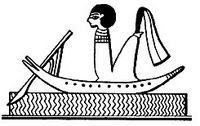Corporations sponsor chaplains in the workplace
"A growing number of companies are offering the services of chaplains in the workplace. Managers say many employees who wouldn't think of calling a therapist or an employee-assistance program will willingly turn to a chaplain ...She reports, "In another side of spirituality at work, about 15% of employers have set aside space for prayer or religious practices in the workplace, and 9% allow religious groups to meet on-site, says a 2008 survey of 543 employers by the Society for Human Resource Management. Texas Instruments Inc. offers 'serenity rooms' where employees can go to pray and meditate."
Following the military-chaplain model, these roving spiritual advisers typically visit offices or factories weekly, greeting employees, hanging out in the break room, handing out business cards and meeting one-on-one with workers. But they're also on-call 24/7, so chaplains rush to hospitals, restaurants or homes on request, providing comfort and support free of charge to employees.
They perform weddings or funerals for people who have no one else to do so. And they pray with employees over problems from medical or marital crises to job loss, addiction and financial woes, holding the information in confidence."
Thomas Moore writes about spirituality in the workplace in his book A Life at Work (Broadway Books, 2008).
Labels: A Life at Work, Spirituality



